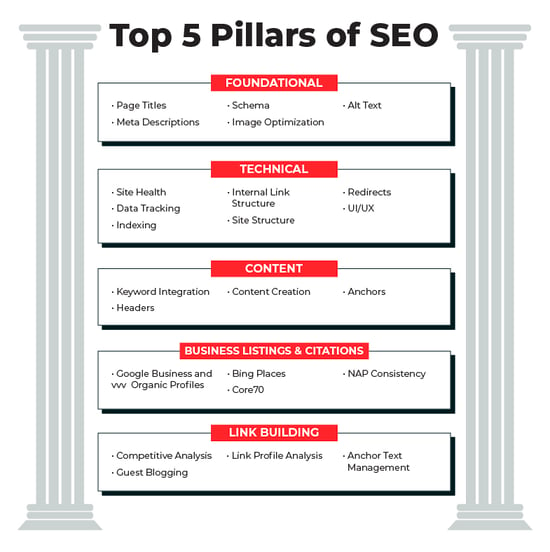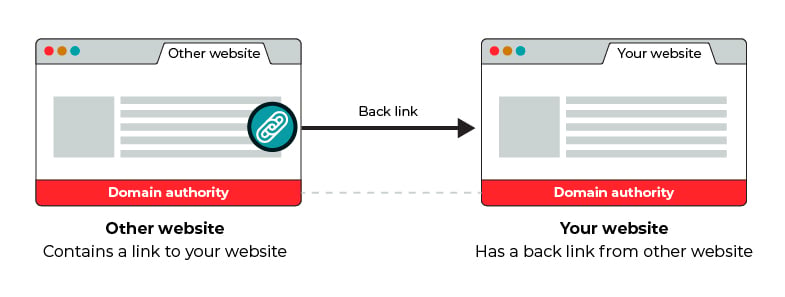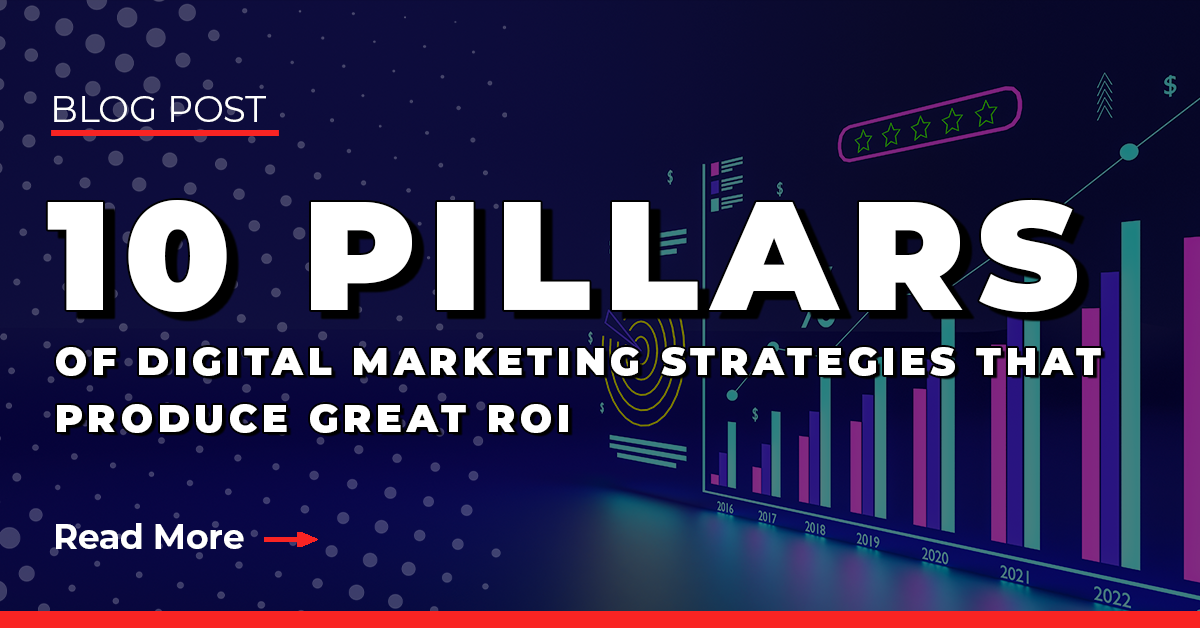7 min read
Uncover the SEO Metrics that Really Matter: A Comprehensive Guide
![]() By Annie Wissner
Mar 1, 2023 6:04:00 PM
By Annie Wissner
Mar 1, 2023 6:04:00 PM

That's why we've created this comprehensive guide to help you navigate the ever-changing world of SEO metrics. By learning the significance of each metric, how to track it, and how to leverage it to your advantage, you can improve your website's search engine rankings and drive more traffic to your business. Whether you're a seasoned SEO expert or a newcomer to the field, this guide will provide you with the insights you need to succeed.
What is SEO?
Before diving into the specific metrics, it's important to understand the basics of SEO. Put simply, SEO (search engine optimization) refers to the process of optimizing your website's content so that it can be easily found by search engines. This involves various tactics such as keyword optimization, website speed improvement, creating backlinks, and more. By implementing effective SEO strategies, you can improve your website's visibility in search engine results and increase organic traffic. The ultimate goal of SEO is to improve your website's search engine rankings by ensuring that it's relevant and easily discoverable by your target audience. In this guide, we'll explore the key metrics you need to track, analyze, and improve to achieve SEO success.

Foundational SEO Metrics
To better understand the success of your SEO strategy, it’s crucial to track foundational SEO metrics. The first key metric is the number of visitors to your website. Not only does this indicate the success of your SEO efforts, but it also offers insight into your website's performance compared to your competitors. To gain further valuable insights, monitoring the average time spent on your website, as well as the number of pages viewed, can indicate the level of engagement with your content and whether visitors are taking desired actions.
Another crucial metric is the number of organic search queries your website receives. This metric reflects the visibility of your website in search engine results and indicates whether you’re targeting the right keywords. Identifying new keywords to target can further improve your search engine rankings, making this metric invaluable.
Finally, tracking the number of conversions from organic search queries is another vital metric to consider. This metric provides insight into the effectiveness of your SEO efforts, highlighting whether you’re targeting the right keywords and indicating areas for improvement to increase conversions. By tracking foundational SEO metrics like these, you can optimize your website for higher rankings, increased traffic, and better conversions.

Technical SEO Metrics
Technical SEO Metrics are crucial for improving your website's search engine rankings. Here are some important metrics to consider:
- Index Rate: This metric measures the number of pages on your website that have been indexed by search engines. You can track this metric using tools such as Google Search Console and Bing Webmaster Tools.
- Engagement: This metric measures the level of interaction visitors have with your website, such as time spent on site, pages viewed, and click-through rates. You can measure this metric using website analytics tools like Google Analytics.
- Bounce Rate: This metric measures the percentage of visitors who leave your website after viewing only one page. A high bounce rate can indicate that your website is not providing the information or experience that visitors are looking for. This is another metric you can track using website analytics tools.
- Conversions: This metric measures the number of visitors who take a desired action on your website, such as making a purchase or filling out a contact form. Similar to engagement and bounce rates, website analytics tools allow you to track this metric.
- Conversion Rate Optimization (CRO) Audits: This metric refers to the process of analyzing your website's performance and making changes to improve its conversion rate. This can include analyzing website design, content, user experience, and more. CRO audits can be performed by a professional digital marketing agency like High Level Marketing or using tools like Google Optimize.

By measuring and analyzing these technical SEO metrics, you can make informed decisions about how to optimize your website and improve your search engine rankings.
Hot Tip:
When your website's traffic is on the rise, you should also see an upward trend in your conversions. If you're not experiencing an increase in conversions, it might be time to pivot your focus to conversion rate optimization (CRO) and conduct some keyword research. One effective strategy is to integrate more transactional keywords into your content instead of informational ones to encourage more conversions.Content SEO Metrics
Content is essential for SEO, and optimization helps you get the best rankings. There are several metrics to measure the success of your content:
- Keyword Rankings: Track how well your content performs on search engine result pages (SERPs) for target keywords.
- Impressions: Gauge how many people are seeing your content on SERPs.
- Scroll Depth: Measure how far readers scroll down the page to quantify their level of engagement with your content.
- Engagement/Bounce Rate: Monitor how often visitors click through to other pages, stay on your content, or abandon it quickly.
- Time on Site: Identify how much time readers spend on your content to get a better understanding of their level of interest.
- Conversion Rate: Measure the number of conversions and sales generated from your content to assess its effectiveness.
Content metrics are important in SEO and should be monitored to ensure your content is performing well. Knowing how visitors engage with your content, how many impressions it receives, and how often it converts will give you a better understanding of how effective your SEO strategies are. By tracking keyword rankings, impressions, scroll depth, engagement/bounce rate, time on site, and conversion rate, you can ensure your content is optimizing your SEO efforts and helping you reach your goals.
Business Listing & Citation Metrics
Business listings and citations are important for SEO since they help improve your website’s visibility in search engine results. There are several metrics that can help you measure the success of your listings and citations. From reviews and ratings to website clicks and social conversions, these metrics help you gain insights into how your business is doing and what customers think of it.
- Reputation: Monitor your business’s reputation to ensure it’s in good standing with customers and potential customers.
- Reviews: Keep an eye on customer reviews to get an idea of what people think about your business.
- Ratings: Monitor ratings on major platforms such as Google and Yelp to ensure your business is well-rated.
- Calls: Track how many calls your business receives to better understand customer interest.
- Website Clicks: Measure the amount of clicks your website receives to evaluate how engaging it is.
- Views/Searches: Monitor how often your business is searched or viewed to determine how visible it is.
- Profile Conversions: Track how many visitors convert to customers after visiting your business profile.
- Social Conversions: Measure how often conversions are generated from social media to assess the effectiveness of your social media campaigns.
As a small to mid-sized business, you have a lot of options when it comes to business listing tools. Google My Business, Yelp, Facebook Business, Bing Places for Business, and Apple Maps are some of the most popular choices. With these tools, you can effectively manage your business listing, including adding and updating business information, photos, and responding to customer reviews. With the help of these tools, you can reach more customers and build a strong online presence.
Top business listing tools for small and midsize businesses are:
- Google Business Profile: This is the most widely used business listing tool, and it's free. It allows you to manage your business information across Google's suite of services, including Google Search, Google Maps, and Google+. You can add your business name, address, phone number, hours of operation, and more.
- Yelp: Yelp is a popular business directory that allows users to find and review businesses in their area. It offers both free and paid options, and allows you to add your business information, photos, and respond to customer reviews.
- Facebook Business: Facebook Business allows you to create a free business page, which includes a business listing. You can add your business information, photos, and respond to customer reviews.
- Bing Places for Business: Bing Places for Business allows you to manage your business listing on Bing, which is the second most popular search engine after Google. You can add your business information, photos, and respond to customer reviews.
- Apple Maps: Apple Maps is the default maps application on iPhones and iPads. You can add your business information to Apple Maps through Apple's Maps Connect tool.
Link Building (or Backlink) SEO Metrics
Link building (or backlinks) is an important part of SEO since it can help improve your website’s visibility in search engine results. There are several metrics that can help you measure the success of your link building efforts.
The first metric to consider is the number of backlinks. This metric measures the number of websites linking to your website. Having a large number of backlinks can help improve your search engine rankings, so it’s important to monitor this metric and make sure you’re getting as many backlinks as possible.

The next metric to consider is the quality of your backlinks. This metric measures the overall quality of the websites linking to your website. Quality backlinks can help improve your search engine rankings, so it’s important to monitor this metric and make sure you’re only getting quality backlinks from relevant websites.
Finally, another important metric to consider is the relevance of your backlinks. This metric measures how relevant the websites linking to your website are. Relevant backlinks can help improve your search engine rankings, so it’s important to monitor this metric and make sure you’re getting backlinks from websites that are relevant to your industry.
How to Leverage SEO Metrics to Improve Your Online Presence
Now that you know which metrics are important, it’s time to learn how to use them to improve your online presence. Here are a few tips to help you get started:
- Track your metrics: Tracking your metrics is the first step to understanding how your SEO efforts are performing. It’s important to track your metrics regularly so you can identify areas where you can improve.
- Analyze your metrics: Once you’ve collected your metrics, it’s important to analyze them to identify trends and uncover areas where you can improve.
- Make improvements: After analyzing your metrics, it’s important to make the necessary improvements to ensure your website is performing optimally. This could include optimizing content for keywords, improving page speed, creating relevant backlinks, and more.
- Monitor your progress: Once you’ve made the necessary improvements, it’s important to monitor your progress to ensure your SEO efforts are having the desired effect.
By tracking, analyzing, and improving your SEO metrics, you can ensure your website is performing optimally and get the most out of your SEO efforts.
Conclusion
To build your SEO strategy, you'll need a game plan. This guide will help you identify the key SEO metrics and understand the significance of each one. With the right SEO tactics and strategy, you can rank higher in search engine results pages (SERPS) and drive traffic to your website. Now that you know what SEO metrics are, it's time to put them into action.
It's important to remember that SEO is a long-term investment. You'll need to put in the time and effort to properly optimize your content for search engine results pages (SERPS). To get started, you'll need to familiarize yourself with the pros and cons of different SEO techniques and make an informed decision as to which ones you'd like to prioritize.
Author: Annie Wissner
Contact Us NowRecent Posts
When you're done with this post, check out our other content below for more Digital Marketing expertise
Contact Us Today
Complete the form below and receive a call within minutes.
Need faster results? Call us now at (888) 717-4249





